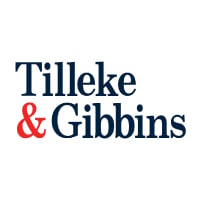

Senior vice president, head of legal | Lazada Thailand






Rugeradh Tungsupakul
Senior vice president, head of legal | Lazada Thailand
What are the most significant cases, projects and/or transactions that you and/or your legal team have recently been involved in?
Recently, my legal team and I have been involved in several high-profile cases, one of the most significant being our successful defence of platform liability at both regulatory and court levels. In Thailand, platforms are often held jointly liable with sellers for various activities, and the concept of platform defence – arguing that platforms should not be held responsible for the actions of third parties – has been repeatedly challenged by regulators.
We defended this position successfully in multiple lawsuits across criminal, civil, and intellectual property courts, and obtained favourable outcomes at the prosecutorial stage, including non-prosecution orders. These outcomes not only protected our companies from unwarranted liability but also contributed to the evolution of the legal landscape for platforms in Thailand.
The broader implications are considerable. A more stable and predictable legal environment enhances investor confidence and supports Thailand’s positioning as a viable investment destination. Through our ability to manage complex legal challenges and deliver strategic results, our team has demonstrated how legal counsel can help drive both regulatory clarity and sustainable business growth.
How do you approach managing legal aspects during periods of instability or crisis to ensure the organisation’s resilience?
My approach to managing legal aspects during periods of instability or crisis centres on applying a robust change management framework to guide the organisation through challenging times. I focus on three strategic pillars to ensure the legal team remains effective, efficient, and resilient.
First, optimising resource usage is critical. During such periods, it is essential to reassess the volume and nature of legal work to ensure that resources are deployed where they are most needed. I work closely with relevant teams to identify tasks that can be deprioritised or temporarily paused, ensuring that only essential legal functions continue. This focused approach enables the organisation to direct limited resources towards high-priority areas that support overall resilience, while avoiding unnecessary expenditure. By strategically realigning our efforts, we maximise our impact where it matters most and ensure a lean, agile response.
Second, adopting technology and AI can significantly enhance efficiency, which becomes paramount in a crisis. Leveraging such tools allows us to manage high-volume, low-risk tasks more effectively. For instance, AI can support automation in document drafting, contract analysis, and compliance monitoring, freeing up legal professionals to concentrate on more complex, high-risk matters that require human judgement. The integration of these technologies enhances operational efficiency, ensures compliance, and helps manage legal risk without overextending our team’s capacity, allowing us to stay adaptable and responsive to evolving organisational demands.
Third, ensuring team morale is vital. In times of uncertainty, it is easy to overlook the human element, yet sustaining motivation and resilience within the team is crucial to long-term success. I place strong emphasis on fostering a supportive and inclusive environment, where individuals feel recognised, valued, and equipped to manage stress. This includes regular check-ins, celebrating successes, and offering opportunities for continued learning and development. Maintaining team morale in this way helps ensure that legal professionals remain engaged, focused, and productive—even under pressure.
By adopting this proactive and holistic approach, grounded in resource optimisation, technological enablement, and the wellbeing of the team, I ensure that the organisation remains resilient, adaptable, and well-prepared to navigate periods of instability. This strategy not only protects the legal function but also reinforces the organisation’s broader ability to operate effectively and sustainably in uncertain conditions.
What do you think are the most important attributes for a modern in-house counsel to possess?
In my view, the most important attributes for a modern in-house counsel are humility, a commitment to continuous learning and innovation, and a strong awareness of health and well-being. Humility and the pursuit of continual development are essential in a legal landscape that is constantly evolving. Regulatory frameworks, technological capabilities, and business priorities shift rapidly, requiring legal professionals to remain adaptable and forward-thinking. A modern in-house counsel must recognise that legal expertise is never static. By actively seeking improvement and embracing innovation, we are better positioned to anticipate emerging challenges, respond to new risks, and offer legal solutions that are not only sound but also aligned with strategic business objectives. This approach ensures that legal advice remains relevant, effective, and valuable to the organisation’s long-term success.
Health awareness is equally important. The contemporary legal environment demands more than technical proficiency; it also requires resilience, mental clarity, and sustainability. True success is no longer measured by the number of hours worked, but by the ability to work effectively, maintain balance, and support one’s well-being. Prioritising both physical and mental health enables in-house counsel to make well-informed decisions, manage pressure effectively, and contribute to a positive, motivated workplace culture. Promoting wellness and balance helps legal teams remain focused, productive, and engaged, particularly during times of challenge or change.
Together, these qualities enable modern in-house counsel to navigate today’s complex business environment. They enhance not only the organisation’s performance but also the long-term development, morale, and well-being of the legal team, fostering a culture of resilience, innovation, and sustainable success.
What is a cause, business or otherwise, that you are passionate about? Why is this?
I am deeply passionate about advocating for animal welfare, particularly through legal and policy channels, and I am committed to creating a more just world for animals through thoughtful and strategic legal advocacy. Over the years, I have come to believe that a robust legal framework is essential to ensuring that pets are properly cared for, that negligent and irresponsible owners are held accountable, and that sustainable and humane systems for animal care are established. I am convinced that well-crafted laws and policies can drive real and lasting change for animals, shaping a society in which they are treated with dignity and respect.
My personal journey with animal welfare has only deepened this commitment. As an adopter of several stray cats, I have witnessed firsthand the remarkable transformation that occurs when an animal is offered a loving home. Through these experiences, I have developed a deeper understanding of the challenges and rewards of pet adoption, and I am particularly motivated to promote adoption as a means of giving animals a second chance at life. Furthermore, I am driven to reduce the demand for unethical farming practices, which frequently exploit animals for profit, by encouraging more ethical approaches to animal care and food production.
My focus is on using legal advocacy to foster meaningful change in these areas. This includes promoting legislation that enforces responsible pet ownership, ensures proper registration of pets, and regulates inhumane farming practices. I believe that with thoughtful and strategic legal measures, we can develop policies that not only protect animals but also promote their humane treatment across all sectors of society.
By gaining further experience in legal advocacy, I aim to play an active role in shaping laws that safeguard animals, uphold ethical standards, and contribute to a broader societal shift towards compassion. Ultimately, my goal is to make a lasting and tangible impact by improving the lives of animals and advancing a more humane world for both animals and the communities that care for them.
Head of legal | Lazada Group